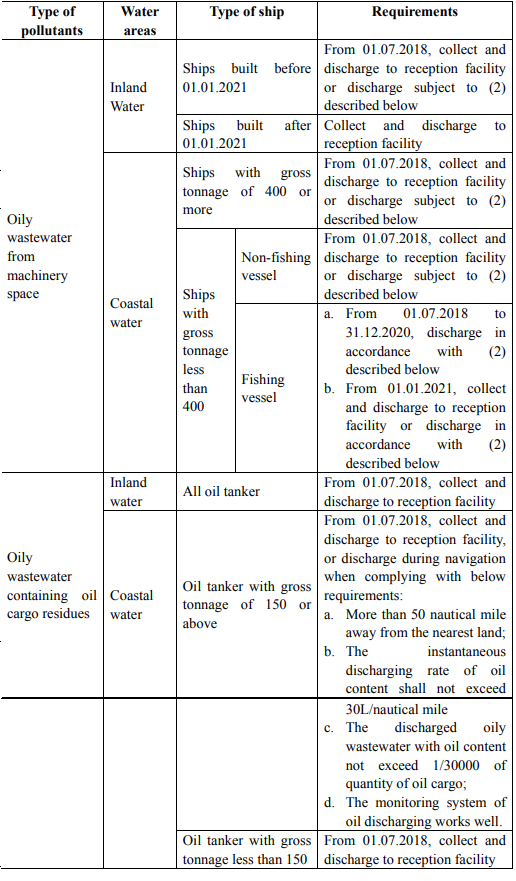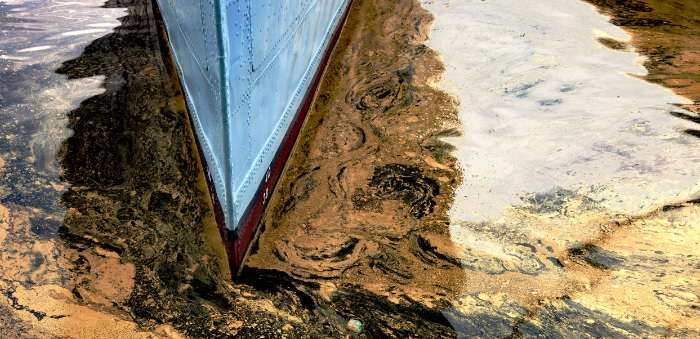In line with continuous efforts to minimize pollution both on air and in the water, the Chinese government has issued amended Discharge Standard for Water Pollutants from Ships, which has become effective from 1 July 2018, according to Hatai Insurance Agency.
The Standard stipulates the control requirements and the testing requirements for discharging oily wastewater and sewage, the control requirements of discharging waste water containing noxious liquid substances and garbage from ships, and the implementation and supervision of this Standard.
The Discharge Standard regulates the discharging limits and monitoring requirements of oily wastewater and sewage from ships, the emission control requirements of waste water containing noxious liquid substances and garbage from ships, and the requirements for the implementation and supervision of this standard, etc.
According to data provided by the American P&I Club, the list has been updated to include:
- (Effective December 31, 2018): 16 types of solid waste, including scrap metal, ship scrap, compressed pieces of scrap automobile, smelt slag and industrial waste plastic; and
- (Effective December 31, 2019): 16 types of solid waste including stainless steel waste and scrap, titanium waste and scrap, wood waste and scrap.
Discharge control requirement of discharging oily wastewater
- The discharging of oily wastewater shall be carried out in accordance with following table.

- Oily wastewater from machinery space shall be discharged in accordance with following table and the discharging operation is required to be conducted during navigation.

Ships in violation of above discharge requirement may be subject to relevant administrative punishment, such as penalty, under relevant legislation.
Owners are recommended to take appropriate measures when discharging water pollutants from ships in China or other sea areas under Chinese jurisdiction from 01.07.2018 to ensure satisfaction of relevant requirements and to avoid any delay or penalty to the ship.
Explore more herebelow:































































